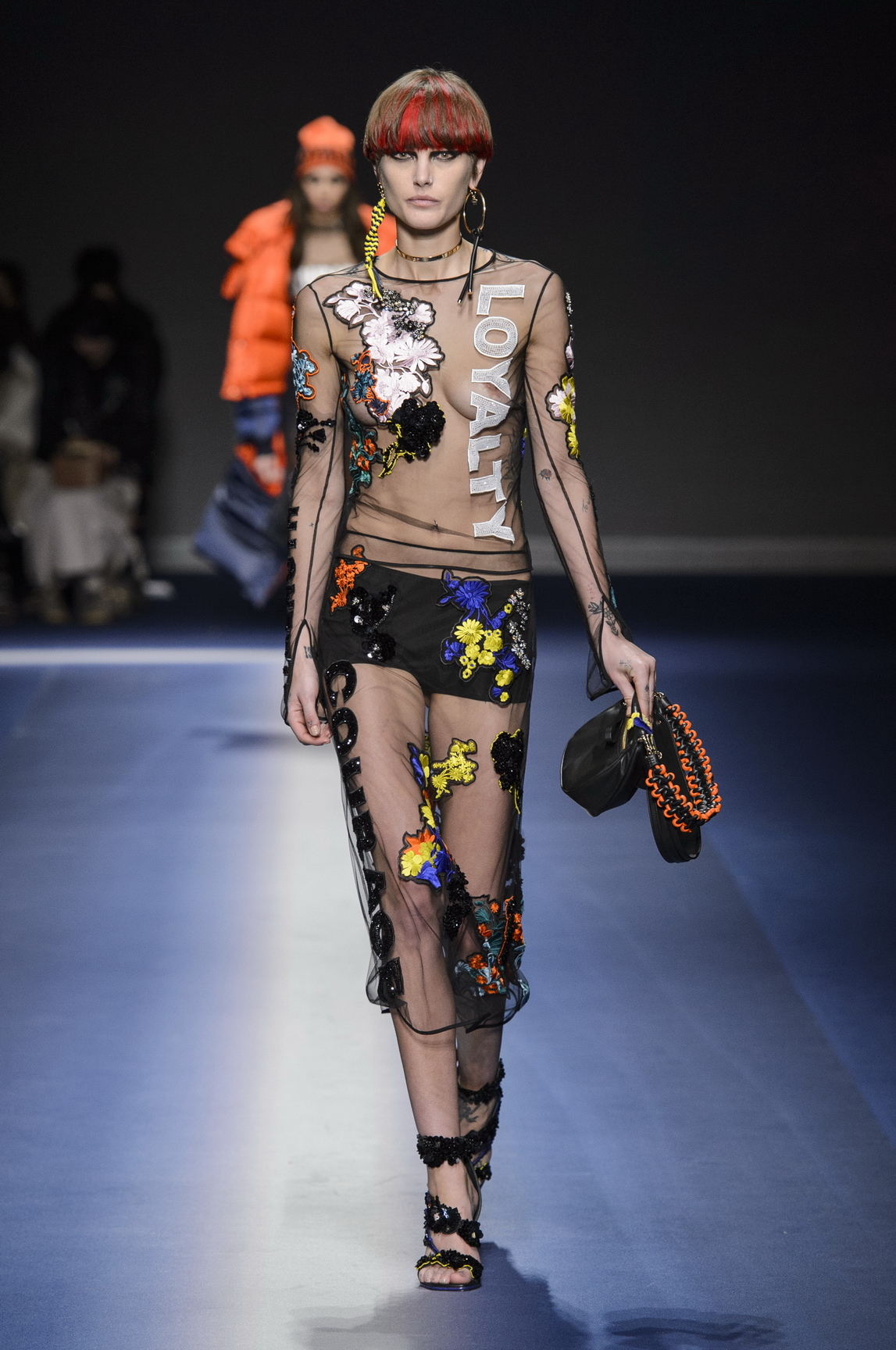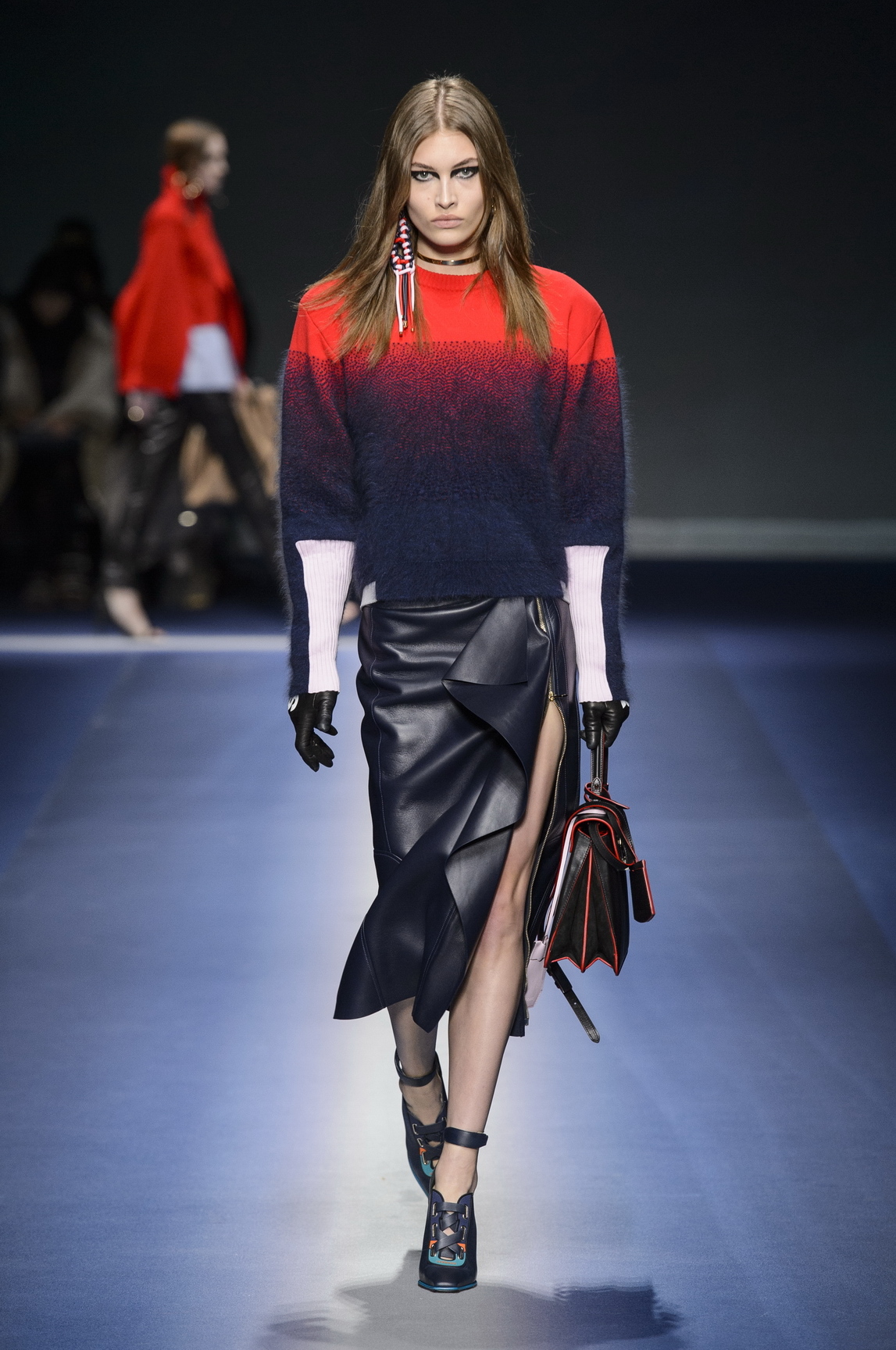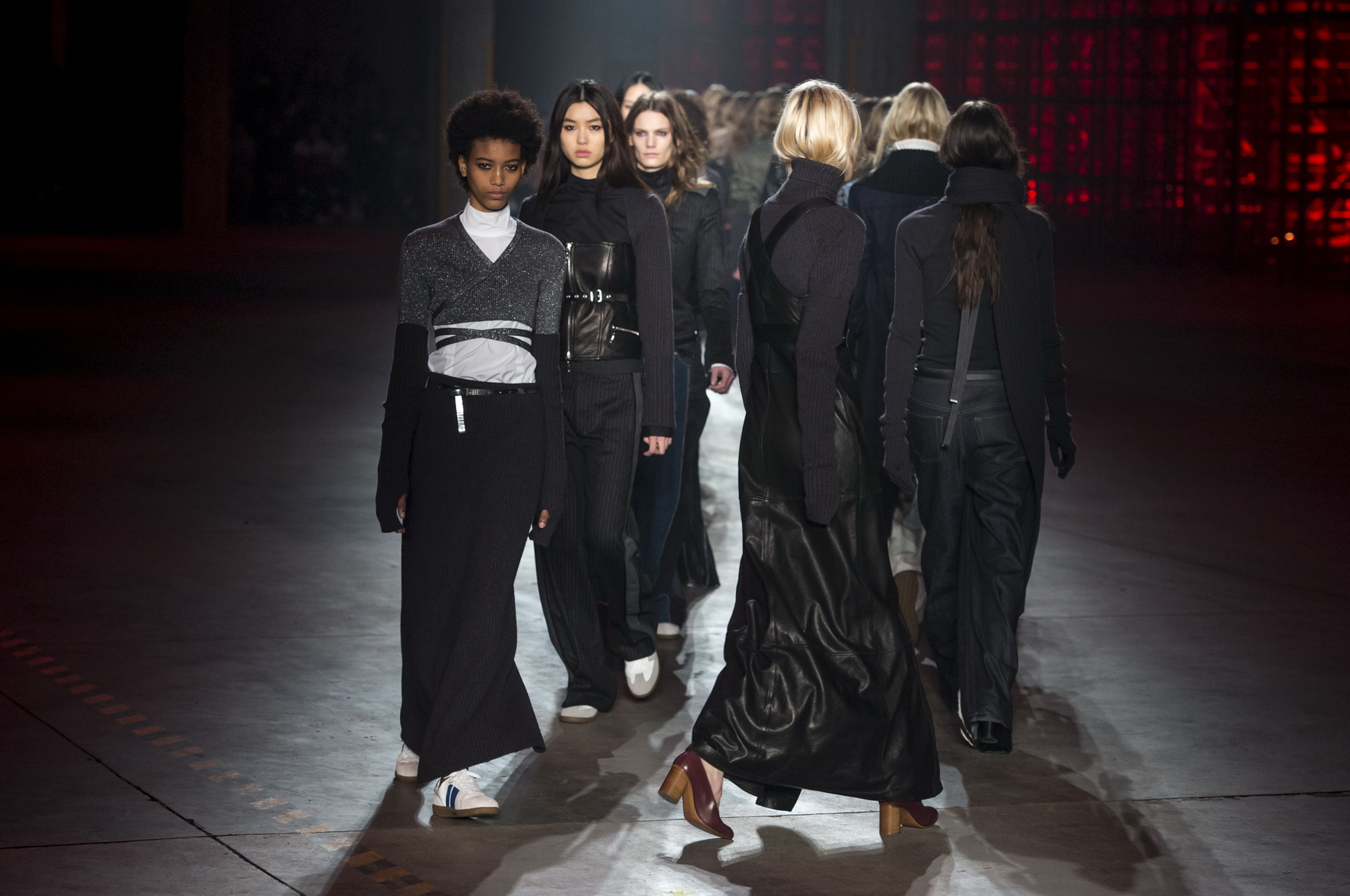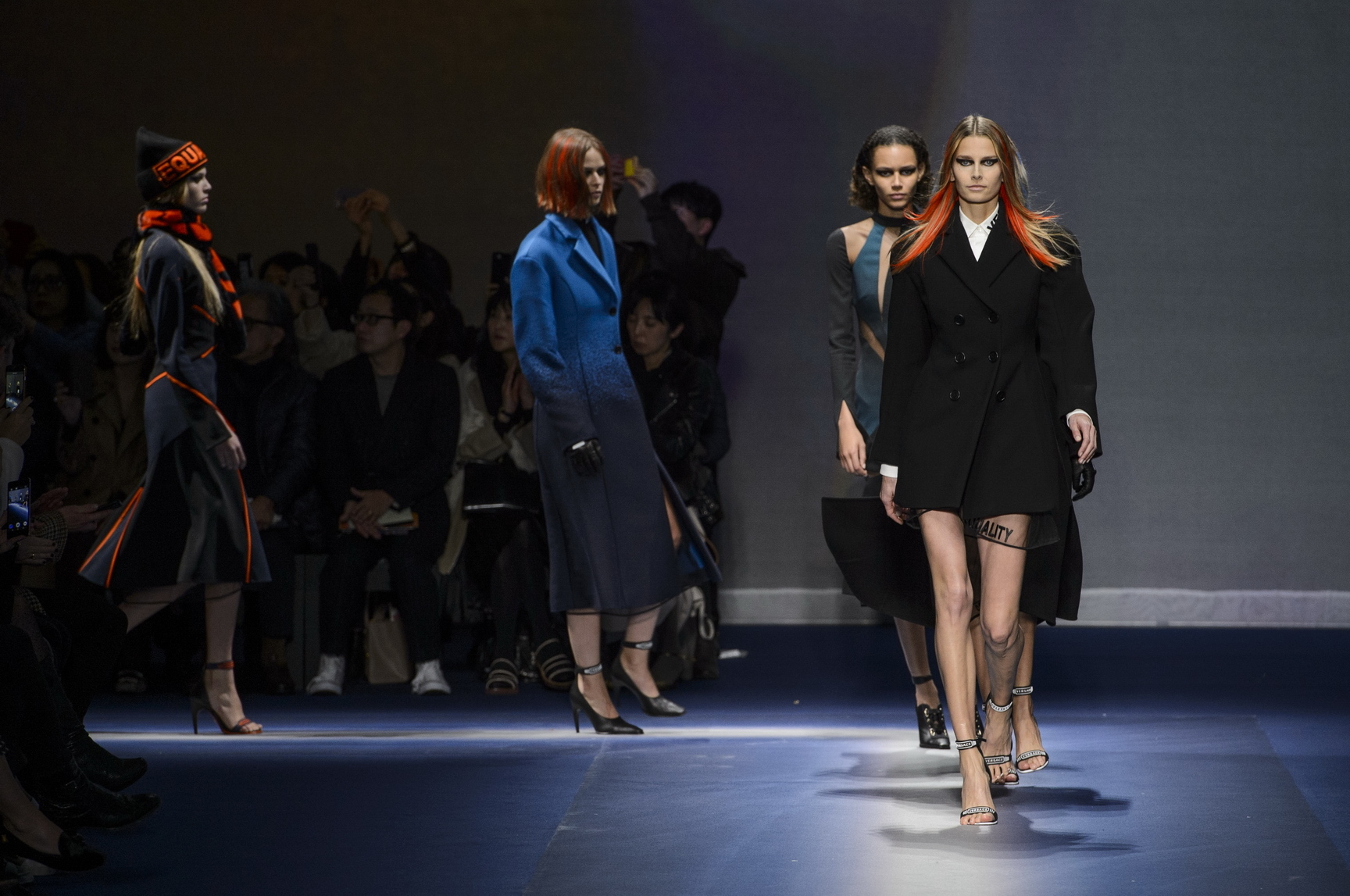If the fall/winter 16 men’s shows in January were a riotous answer to the cataclysmic political events of 2016, the women’s shows in Milan this week are tackling the situation with suitable female pragmatism. Gone are menswear’s call-for-arms protests embodied last month in the punkish attitudes of the Moschino, Valentino, and Raf Simons men’s shows — replacing it on the women’s runways is a protective sentiment of grave concern. “Everything we’ve achieved can finish tomorrow,” Donatella Versace said in a preview of her collection, which featured words like ‘equality’, ‘unity’, ‘courage’, ‘strength’, and ‘loyalty’ on dresses, sleeves, and hats like protests banners of a different kind. It wasn’t pacifism, but like Prada and Fendi the day before her show, the Versace matriarch’s approach is coming from a place of experience. The dynastic fashion houses of Milan are fronted by women whose youths were shaped by the 60s and 70s’ liberating winds of change. Donatella Versace, Miuccia Prada, Silvia Venturini Fendi, Laudomia Pucci, and Angela Missoni have spent their lives seeing these changes through the eyes of fashion, understanding the intrinsic relation between what women wear and how they’re perceived.

Clichéd as the statement may be, fashion is the ultimate tool for female empowerment, and on Friday evening in Milan Versace’s message wasn’t just expressed literally or in the Peder Mannerfelt techno soundtrack Equality Now, which reiterated the word ‘equality’ some one thousand times. The collection celebrated every inch of the free female form, in transparency in dresses that revealed the models’ naked bodies — “the tattoos are not part of the dress,” Versace smiled, admiring Catherine McNeil’s floral-inked back through a black tulle dress with flower and word embroidery — and tailoring blown up to sculptural over-dimension enhancing the natural attributes of the body, like an elongated navy blazer that faded into light blue shimmer. The effect was repeated in a mohair sweater with sparkly yellow dégradé styled with a loose-fitting trouser, the sum of which Versace called “cocktail sportswear” — a feminist statement in itself. Then there was the self-protection theme bound to appear in fashion in times like these: big furs, a chainmail cocktail dress, and all the embellishment a girl could dream of.

In its intricacy and electrifying color, the collection was a different kind of beautiful for Versace, equal parts fragile and strong. In its message it was something we could all agree with, at least in the liberal fashion bubble that surrounds these shows. Come fall, with a little luck, the spectators and consumers of fashion will be just as inspired by Versace’s statements. “We need to unify in order to have a better future for everybody,” she said. “The boys, too.” Next time we visit the hallowed halls of Versace, there could be new male energy in the mix. At the shows, rumor has it Riccardo Tisci, who recently left Givenchy, could be joining the house in some capacity as early as March. As far as Donatella’s mission is concerned, however, feminism is forever. This house may have been founded by a man, but it was built for women. Giorgio Armani is no woman, but it was his mannish tailoring that brought new might to boardroom feminism in the 80s. His Emporio Armani show on Friday morning was of a rather more bijou character, picking up on the winter floral moment that’s hit this season hard.

But in its prettiness, great, big coats asserted their authority in the collection he called “a harmony of crescendo, diversity and contrast.” They were covered in another season affinity: multi-texture, from sequins to frills and hairy things, a more-is-more sentiment for fall/winter 17 very much established at Prada on Thursday evening. At Diesel Black Gold, Andreas Melbostad used the dim pre-grunge romance of the early 90s to make his statement: nostalgia for a progressive time when pop stars were making songs about healing the world and the First Lady was about to be called Clinton. “Make love not walls,” reads Diesel’s current anti-Trump campaign, and it’s a message that will no doubt define this show season — next, of course, to the feminist wave that’s carried the Milan women’s shows so far. Marco de Vincenzo’s feast of cartoonish color and fur on Friday evening was backed up by a Ssion and Michelle Nolan song simply titled “The Woman.” The White House might be haunted by male ego right now, but in this industry female susceptibility still reigns supreme. Fashion for president.

Credits
Text Anders Christian Madsen
Photography Mitchell Sams
